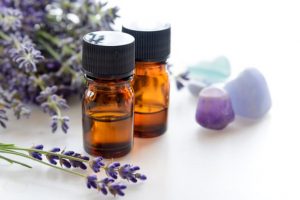
Essential oils can be used to lessen the intensity of tinnitus. They are not to be confused with fragrance oils or perfumes. Essential oils are derived from leaves, flowers, roots, bark, and other parts of plants.
Ironically, essential oils are typically not oily to the touch. If they do feel oily, they are poor quality and contain other additives. Most essential oils are typically clear in appearance and may have a slight color to them.
Essential oils represent the true essence of a plant and have been used for thousands of years for healing. They can be used as part of aromatherapy or mixed with carrier oils, such as jojoba or olive, and applied to the skin to gain its physical benefits.
Essential oils for tinnitus
There are many different types of essential oils containing various properties, with some more appropriate for certain conditions than others. The following essential oils are known for concentration and power to help remedy the symptoms of tinnitus. These oils may also be used in combinations that you feel best works for you:
Helichrysum (immortelle)
Considered the most popular and most beneficial. It can help skin heal faster, repair blood vessels and nerves, and even reduce inflammation. This essential oil can also help heal emotional and physical scars. It is known to be a powerful facilitator to connect body and spirit.
Lavender
A popular essential oil because of its relaxing and sedative properties as well as its distinct sweet floral scent. Lavender oil can help calm and soothe the mind and body. This can eliminate stress, anxiety, fear, and tension, all of which contribute to increased tinnitus intensity.
Cypress
Another great essential oil to ease tinnitus. It is able to stimulate blood circulation while also helping calm the nervous system. Pulsing tinnitus, the result of a problem in blood circulation, benefits greatly from cypress oil.
Juniper
A great detoxifier, juniper cleanses the blood. This essential oil releases toxins from the body and promotes the excretion of uric acid crystals. This detoxifying action of juniper is particularly useful in treating tinnitus.
Patchouli
One of a few oils that can become better with time. Maturing of this oil can change both its color and scent with each passing year. This essential oil has circulatory and draining properties, making it ideal for treating tinnitus symptoms.
Green basil (ocimum basilicum)
An often underappreciated essential oil, it can be used for its health effects as well as cooking. Basil oil is an antispasmodic, meaning it can act upon the smooth muscle cells in the ears and calm down a throbbing and pulsating sensation.
Petitgrain
Extracted from the leaves of the bitter orange tree, this essential oil has an uplifting aroma that can deal with physical and emotional changes. It can act as an antispasmodic, help to relieve tinnitus due to muscle contraction. Petitgrain is also known for its strong calming and sedating properties
How to use essential oils
Despite knowing that essential oils can help treat tinnitus, you should never drop pure essential oil into your ears. This is because essential oils can burn or desensitize the sensitive mucous membranes found within the ear if they are used undiluted.
Instead, you can dilute your essential oils first before using by mixing them into a carrier oil. Carrier oils are vegetable oils full of fatty acids that help disperse the tiny molecules of aromatic oils. Essential oils can be used in their pure form, but just not directly into the ear.
Massage is the best way to apply essential oils to help relieve tinnitus symptoms. The best places to apply them are:
- Behind the ear
- All over the neck
- On the ear lobe
- On the outer ear canal
Using essential oils two or three times a day is ideal for treating tinnitus symptoms. It is important to keep in mind that results will vary depending on the cause of your tinnitus and other factors.
Benefits of essential oils
Essential are potent plant extracts. They are considered useful for treating tinnitus because they hold many beneficial qualities. The following are just a few:
Improve the circulation of both air and blood throughout the body, providing relief from pain. This is especially effective for treating earaches due to an imbalance of air pressure.
- Some essential oils have powerful anti-inflammatory properties, helping to soothe inflamed ears and tissue.
- Most have anti-congestion effects, ensuring good breathing. The passage that connects the middle ear to the respiratory system can be clear of pathogens using these oils.
- Essential oils have pain relieving properties.
- Some oils can aid in the elimination of toxins and dissolve uric acid. This acid is known for solidifying joints and cartilages, leading to inflammation and pain.
- Essential oils can help you relax and maintain focus, helping those with debilitating anxiety cope better.
Related: Tinnitus diet: Foods to eat and to avoid for managing tinnitus